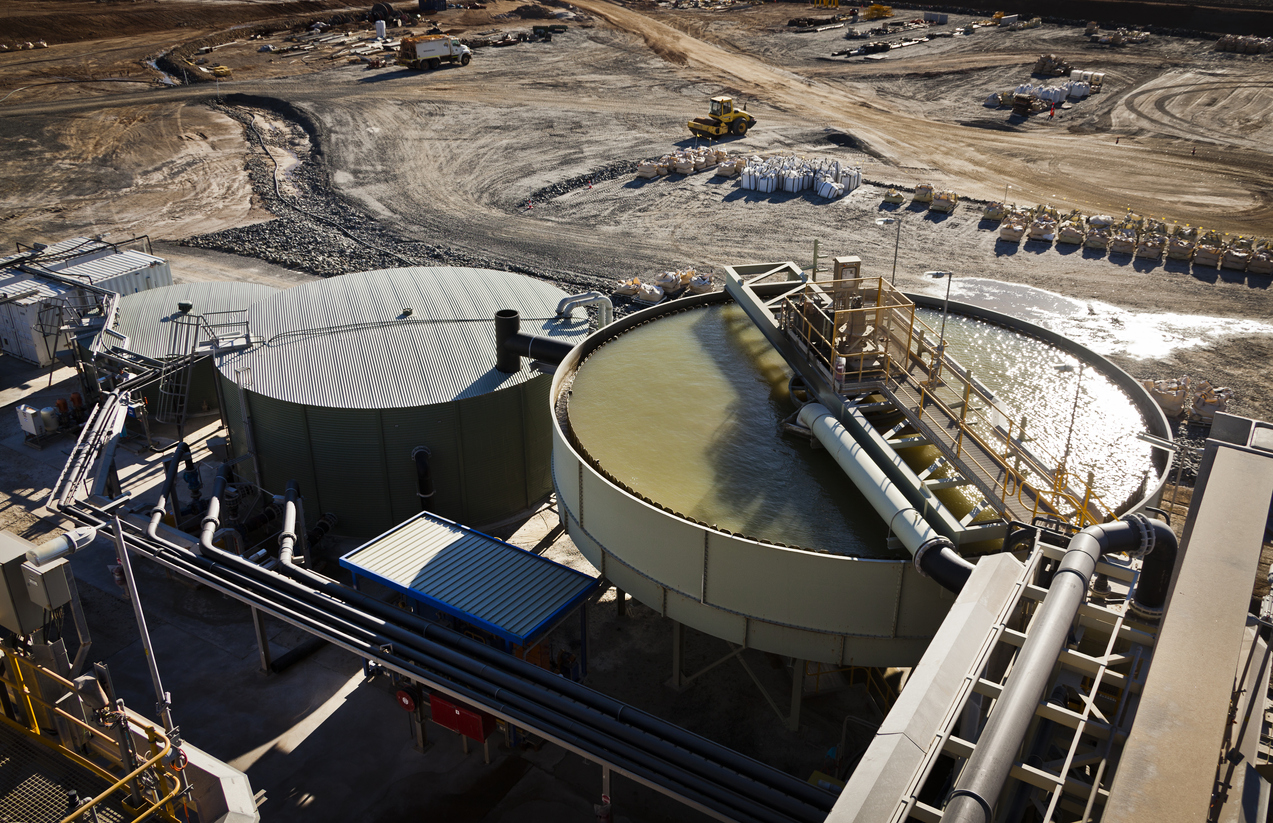Exploring the Untapped Potential: Spodumene Deposits in Nigeria
Exploring the Untapped Potential: Spodumene Deposits in Nigeria
Are you ready to unearth Nigeria’s hidden gem? Join us on an exciting journey as we delve into the untapped potential of spodumene deposits in this captivating blog post. Brace yourself for a thrilling exploration of Nigeria’s mineral wealth, as we uncover the valuable opportunities that lie beneath the surface. Get ready to discover why these spodumene deposits are poised to revolutionize Nigeria’s mining industry and pave the way for a prosperous future. Don’t miss out on this eye-opening adventure into one of Africa’s most promising resources – it’s time to embark on an unforgettable expedition!
Introduction to Spodumene Deposits
Introduction to Spodumene Deposits
Spodumene deposits are a type of lithium-bearing mineral deposit that is becoming increasingly important in the world of renewable energy and technology. These deposits are formed through geological processes involving the enrichment of lithium in rocks such as pegmatites, which are igneous rocks with large crystals. While spodumene is found in many countries around the world, it has recently gained attention in Nigeria due to its vast untapped potential.
Composition and Properties
Spodumene is a silicate mineral that typically forms in prismatic crystal structures. Its chemical formula is LiAlSi2O6, meaning it contains high concentrations of lithium (Li), aluminum (Al), and silicon (Si). This composition makes spodumene an essential source of both lithium and aluminum, which have numerous industrial applications.
One of the unique properties of spodumene is its ability to store large amounts of energy. Due to its high lithium content, spodumene can store up to three times more energy than conventional batteries used today. This property has made it a vital component in the production of rechargeable batteries for electric vehicles, smartphones, laptops, and other electronic devices.
Formation and Occurrence
Spodumene deposits are primarily formed through hydrothermal processes where hot fluids rich in dissolved minerals move through cracks and fissures in rocks.
History of Spodumene Mining in Nigeria
The history of spodumene mining in Nigeria dates back to the early 1900s, when the mineral was first discovered in large deposits in various parts of the country. The discovery of spodumene in Nigeria was met with great excitement and potential as it was recognized as a valuable source of lithium, an essential element used in various industries such as electronics, ceramics, and batteries.
Spodumene is a naturally occurring mineral that is commonly found in pegmatite rocks. These rocks are typically found associated with other minerals such as quartz, feldspar, and mica. Due to its high concentration of lithium, spodumene quickly became a highly sought-after mineral by major industries around the world.
The first documented exploration for spodumene deposits in Nigeria was carried out by the British Geological Survey (BGS) between 1905-1911. During this time, they identified several areas with significant reserves of spodumene. However, due to the lack of advanced technology and infrastructure at that time, no commercial mining activities were undertaken.
It wasn’t until the 1950s that mining companies started showing interest in exploring and exploiting these vast resources of spodumene in Nigeria. One notable company was Nigerian Mining Corporation (NMC), which conducted extensive geological surveys across different states including Nasarawa, Plateau, and Kaduna.
Current State of Spodumene Industry in Nigeria
The mining industry in Nigeria has long been dominated by the extraction of oil and natural gas, however, recent developments have brought attention to a new potential source of revenue for the country – spodumene deposits. Spodumene is a mineral commonly found in pegmatite rocks and is a major source of lithium, an essential component in the production of batteries for electric vehicles and other electronic devices.
Currently, Nigeria is home to some of the largest spodumene deposits in the world, with an estimated reserve of over 15 million tons. These reserves are largely concentrated in the central states of Kaduna, Nasarawa, Plateau, and Kano. Despite this abundance, the spodumene industry in Nigeria remains largely untapped.
One major factor contributing to this is the lack of infrastructure and equipment necessary for large-scale mining operations. The majority of these deposits are located in remote areas, making transportation difficult and costly. Additionally, there is a shortage of skilled labor and inadequate technical expertise within the country’s mining sector.
Another challenge facing the spodumene industry in Nigeria is government regulations and policies that hinder investment opportunities. The Nigerian Minerals and Mining Act was enacted in 2007 to attract foreign investment into the country’s mining sector. However, inconsistencies between federal and state laws have created uncertainty for investors.
Potential Economic Benefits of Developing Spodumene Deposits
Spodumene is a mineral that has gained significant attention in the global market due to its increasing demand in the production of lithium, a key component in rechargeable batteries. This mineral can be found abundantly in Nigeria, particularly in the northern states of Plateau, Nasarawa, and Kaduna. With its vast reserves and untapped potential, developing spodumene deposits could bring about numerous economic benefits for Nigeria.
1. Foreign Investment Opportunities:
One of the most significant economic benefits of developing spodumene deposits is the potential for attracting foreign investments. The growing global demand for lithium has made it a highly sought-after commodity, resulting in increased investments in countries with abundant reserves like Australia and Chile. By developing its own spodumene mines, Nigeria can tap into this trend and attract foreign companies and investors looking to secure their supply of lithium.
2. Job Creation:
The development of spodumene deposits would also lead to job creation opportunities across various sectors. In addition to directly employing workers at the mines, there would also be a need for skilled professionals such as geologists, engineers, and technicians to support the mining operations. Furthermore, industries related to mining such as transportation and manufacturing will also see an increase in job opportunities as they provide essential services to support the sector.
Challenges and Limitations Facing the Development of Spodumene in Nigeria
Challenges and Limitations Facing the Development of Spodumene in Nigeria
Despite the abundance of spodumene deposits in Nigeria, there are several challenges and limitations that hinder its development and utilization. These challenges range from technical to economic and regulatory factors, making it difficult for the country to fully tap into its potential as a major producer of this valuable mineral.
1. Lack of Adequate Infrastructure
One major challenge facing the development of spodumene in Nigeria is the inadequate infrastructure in place to support mining operations. This includes poor road networks, lack of reliable power supply, and limited access to water sources. Without proper infrastructure, it becomes more expensive and challenging to extract, transport, and process spodumene ore.
2. Insufficient Mining Expertise
Nigeria has a relatively underdeveloped mining industry compared to other countries with large spodumene deposits such as Australia and Canada. This means that there is a shortage of skilled personnel with expertise in lithium mining techniques. As a result, mining companies may struggle to operate efficiently and effectively without the necessary knowledge or experience.
3. Limited Access to Capital
The development of any mining project requires significant funding for exploration, equipment acquisition, construction, and operation. However, accessing capital can be difficult for companies operating in Nigeria due to high lending rates from financial institutions or lack of interest from investors who perceive the country’s business environment as risky.
Future Opportunities for Growth and Expansion in the Spodumene Market
There are numerous opportunities for growth and expansion in the spodumene market in Nigeria, as the country has vast untapped potential for this valuable mineral. Spodumene is a key source of lithium, which is used in various industries such as electric car batteries, smartphones, and energy storage systems. With the increasing demand for sustainable energy solutions and technological advancements, the demand for lithium is expected to skyrocket in the coming years.
One of the major factors driving future opportunities for growth and expansion in the spodumene market is Nigeria’s rich geological reserves. The country has an estimated 44 million tons of known spodumene deposits, with some experts believing that there could be even more undiscovered resources. This makes Nigeria one of the top contenders in Africa for becoming a major player in the global lithium market.
Furthermore, with government initiatives to promote industrialization and diversify its economy away from oil dependence, there is a strong push towards developing Nigeria’s mining sector. This creates a favorable environment for investment in spodumene mining operations and provides opportunities for foreign companies to partner with local firms to tap into these resources.
In addition to its abundant reserves, another advantage that sets Nigeria apart from other countries producing lithium is its low production costs. As compared to other producers like Australia or Chile, operating costs are relatively lower due to factors such as lower labor costs and readily available infrastructure. This makes it an attractive location for investors looking to establish new mines or expand their current operations.
Conclusion: The Need for Further Exploration and Investment in Nigerian Spodumene Deposits
The exploration and investment in Nigerian spodumene deposits is crucial for the development of the country’s mining industry. Despite being one of the top producers of minerals such as gold, iron ore, and coal, Nigeria has yet to tap into its full potential when it comes to lithium resources.
As we have seen throughout this article, spodumene deposits in Nigeria hold immense untapped potential that can greatly benefit the country’s economy. However, this potential will remain unrealized without further exploration and investment in these deposits.
One of the main reasons why further exploration is needed is because current estimates only account for a small fraction of Nigeria’s potential spodumene reserves. According to the Nigerian Geological Survey Agency (NGSA), there are over 44 known occurrences of lithium-bearing minerals across the country. This includes areas in Kaduna, Nasarawa, Plateau, and Kwara states. However, these occurrences have not been fully explored or evaluated due to limited funding and lack of interest from investors.
In addition to this, most of Nigeria’s existing spodumene deposits have not been fully developed due to inadequate funding and lack of advanced technology for extraction. As a result, production levels are low compared to other countries with similar reserves. This presents a significant opportunity for investment as there is still a large untapped market waiting to be explored.








Comments are closed.